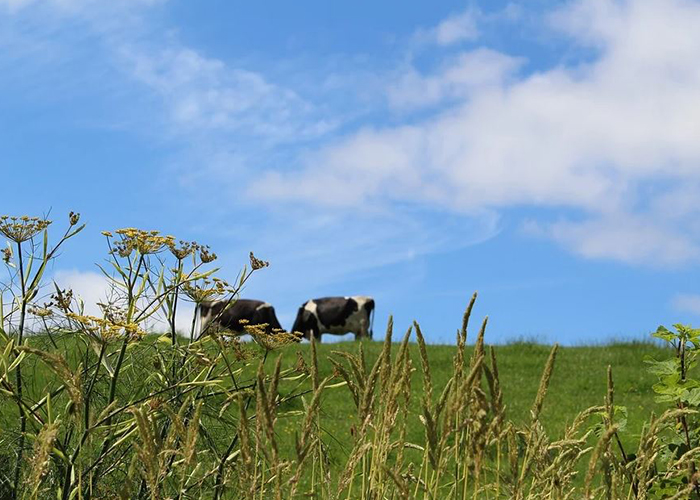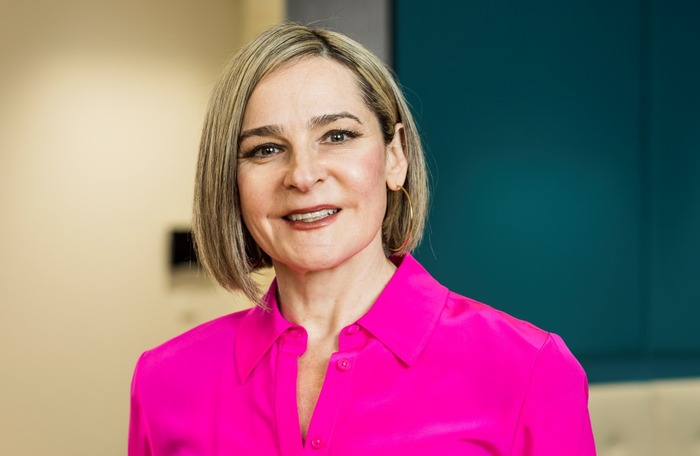- Barclays research reveals 66 percent of those in Scotland look to buy more home-grown produce as a result of the pandemic and Brexit
- Nearly half (49 percent) of Scottish consumers look to purchase seasonal produce, helping the farming sector in becoming carbon neutral
- Barclays teams up with Nigel Owens MBE to highlight the role consumers can play in helping farmers become carbon net-zero by 2045
RESEARCH released today by Barclays has uncovered the impact of the pandemic on consumer grocery shopping habits, as over a quarter (29 percent) of Scots now suggest they buy produce in local shops and farm stores, instead of supermarket-only purchasing pre-Covid. Over 500k Scots had never visited a farm shop prior to the pandemic but now visit regularly. Further to this, 66 percent of Scots suggest they will be buying more home-grown produce as a result of the pandemic and Brexit.
These trends are encouraging as the bank launches its Sustainability Through Agri-Tech campaign in partnership with Nigel Owens MBE, world-renowned rugby union referee, and cattle farmer based in Pontyberem, Wales. The campaign aims to support the whole agriculture industry in becoming carbon net-zero by 2045, an ambition outlined by the Scottish government.
The research uncovers appetite among Scots for sustainably-sourced foods, with 49 percent looking to purchase seasonal produce, an indication that consumers recognise their role in helping the sector become carbon neutral. Additionally, close to two thirds (65 percent) believe grocery shopping from local stores and farm shops is better for the environment, and 52 percent think purchasing from these outlets helps them to better understand where their produce has come from. Encouragingly, farms look increasingly likely to help, with over a half (57 percent) of farmers planning to sell and process at least some of their produce locally within the next three years.
Scots are keen to understand how they can further reduce their carbon footprint, with 56 percent wanting to support farmers more so the industry can become carbon neutral. More than half of those surveyed (51 percent) suggest they would like to see a dedicated aisle in shops for sustainably-sourced foods, and 65 percent think that shops need to provide better information on how shoppers can improve their carbon footprint. This will be hugely helpful for the industry’s ambitions, as 48 percent of respondents didn’t know if it was possible to buy carbon-neutral foods.
Nigel Owens MBE, rugby union referee and farmer in Pontyberem, Wales said: “Looking at ways the economy can recover post-pandemic, we all have to realise our individual and collective roles in helping the nation become more aligned with its sustainability goals. We must move forwards together, like a collective scrum pushing towards the touchline, to achieve the carbon net-zero targets the farming industry has set for itself.”
“We can do this by learning about our food, where we should buy it from and understand how farms in the UK are making progress to become carbon neutral. It’s great that consumers have started shopping locally, which means that they are more aware of the environmental impact of the food they put on their tables. To club together means that we can become carbon net zero – from farm to fork – when the food is on our plate.”
Mark Suthern, National Head of Agriculture at Barclays Business Bank, said: “Consumer awareness of their own environmental impact has increased exponentially over the last few years, and it’s great to see that Brits are supporting farmers in becoming carbon net-zero with new shopping commitments.”
“UK farming businesses are already making huge strides in meeting the 2045 target set by the Scottish government to become carbon neutral, but it’s important that we, as consumers, recognise the importance of supporting the sector to meet that target.”
Industry progress
Barclays also surveyed 276 Scottish farmers from a larger sample of 1,000 across the UK, as part of its Sustainability Through Agri-Tech campaign, and found that eight in ten (84 percent) believe they could be carbon neutral by 2035, ten years ahead of the Scottish government’s target. One in five (20 percent) believe that they have already reached this goal, while 60 percent agree the pandemic has been the catalyst for them to think about how they can make their business more sustainable.





